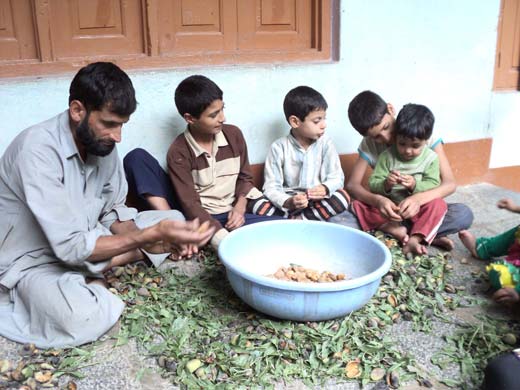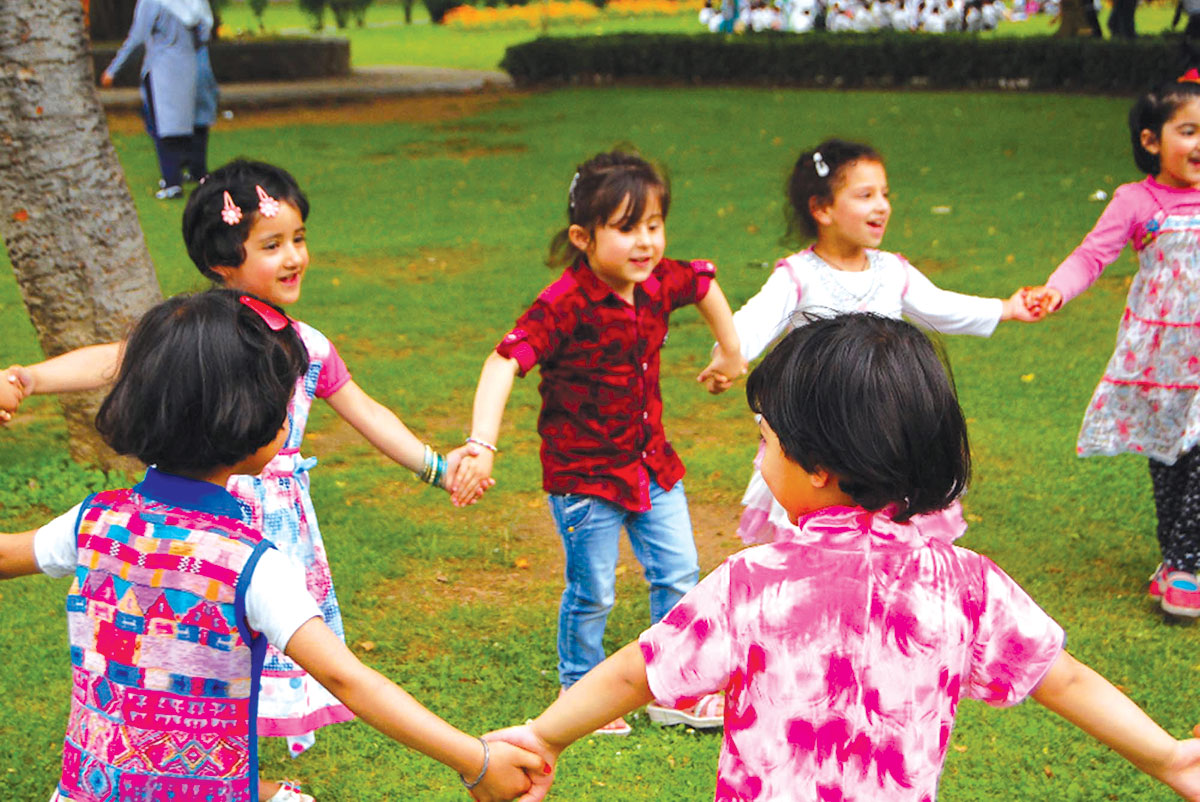by Aaqib Javaid
It has been more than five weeks of lockdown in India and more than three months in the world. Intelligent homo sapiens are stagnant. The changes in the current time are changing the idea of humans on the pre-conceptual order of the world. Humans are closed in new cubical boxes. If I collectively comprehend the religious viewpoints on the chronic pandemic situation, it refers to kafara or karma as per different religious dogmas. The neutral devotee denominates this as a response from nature to human, a season planned to heal the mayhems which people have created.

Being associated with the educational organisation, it emphasized my consciousness in thinking that education’s structure has intentionally or unintentionally paved the way for the condition. When we see our structure of knowledge, it has reached new heights of advancement and yet failed to understand the historical development of humankind. It remains aloof from the processes of primitive life. Our education mostly remains inactive in integrating the school and society, but it combines school and the economy. It differentiates the school and home. This the children lead to prospering life around the economy-based lifestyle with advancement at every step. They were the least connected to society and the neighbourhood system. Sharing and caring were just portrayed in the lines and images of the books but never practised in school education or included in the curriculum.
Education leads us towards consciousness and later decides our actions. The critical factor is how knowledge is making us conscious. The consciousness formation was rooted in the garden of profit and oppression-based economy. The values and ethics were hanging out in the morning assemblies, and the discipline of market-based neoliberal society was shaping not just inside the classroom but also getting advertised in daily life. I am not calling present education disreputable, but there is the least enlightenment towards nature and the life process.
A classroom should be an occupational basis where students should experience the realities of life. Through this process, grassroots knowledge is being imbibed among the children in a comprehensive manner.

Once in a rural school in Barmer Rajasthan, I was engaged with a student related to the Bal Mela (student’s fair) and were helping them to understand verb and nouns. I, along with students, went for a walk and started to describe the noun and verb from their environment. The goat was grazing grass in the outfield. I started connecting the concept of Noun and Verb, from such practice. We discussed which part is a noun (like a goat, grass) and which part is the verb (like eating, graze, walk, etc.).
Later they started observing nature and adding more to their knowledge. This way, their home nature was connected to their education and school. The information which they have learned from home can be valuable at school. The discourse on creation and advancement itself gets pitched, and they get closer to the processes of life.
I am not being a pessimist but still hopes that these days will pave the way towards introspection into our nature of education and learning behaviour. School should be a natural form of active community life rather than a place set apart in which to learn lessons.
Home-Based Learning
As everything is stagnant, loss of education is a more significant loss. Emotional anxiety is increasing day by day. There is a chance to help ourselves and children too. The dream of education can be turned into reality. There exists a chance to engage children in work at home, equip them with skills, and help them to understand the household and the neighbourhood system.

For instance: a child is interested in making the mud houses, involve yourself with them, and start with the necessary process related to the making of the house. They may be short of ideas at some point. We need to build interest afterwards by directing and starting a conversation related to the evolution of architecture and giving examples of old styled houses and newly structured buildings.
Some might like gardening, or some may be interested in cooking, and this helps them to understand the process related to making food. They will come to know about the ingredients, new seed plants, spices, etc. This way, the school learning will be utilized at home also. They learn a lot of things in school about houses, plants, vegetables, cuisine, etc. pebbles, toothpicks, or pennies can be repurposed as mathematic manipulative.
Language learning will be more interesting these days. Create an interest. We should perform action rhymes and storytelling. Build their vocabulary.
Nowadays, in a pandemic, many people are helping each other. This crucial lockdown period is the time when a child can experience human relationships. See human life in a novel and natural way. This whole contextual experience will reach only to the grassroots through teacher as medium and change maker.

Different modes depending upon the reach of the students can be adopted. Educators can assist parents in how to set up and support their children in various activities. Teachers and families should work together to create a home as a classroom. Efforts should be made to connect the new nature of learning behaviour and invest in creating home and school into one institution.
The framework is not for a precise moment, but how to restart anew. The time has reached where the reformation is needed in the school education and knowledge practice. The reality is topsy-turvy at the grassroots against the ideal situation where learners reach for school is a challenge also. There are thousands of students who are the first learners in their families. But I believe we must start somewhere. The world order is changing. Chance is there to change the order of school and society to form the humanistic approach.
(Author is alumni of Jamia Millia Islamia University, New Delhi, and Associated with Azim Premji Foundation. At Jamia, he did his masters in social work with a specialisation in social development. Ideas expressed are personal)















